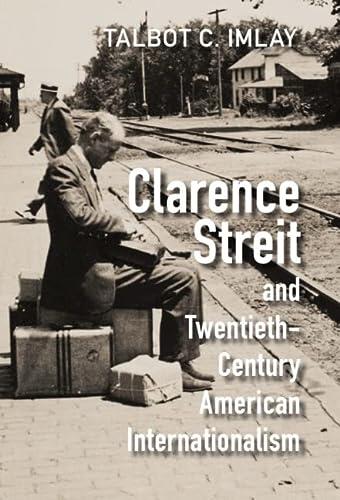
Clarence Streit and Twentieth-Century American Internationalism
by:
Talbot C. Imlay
Language: English
Format: Kindle
ISBN 10: 100929900X
ISBN 13: 9781009299008
Publication date:
January 1st, 2023
Publisher: Cambridge University Press
Pages: 234
In this scholarly exploration, Talbot C. Imlay delves deep into the life and ideas of Clarence Streit, a pivotal figure in the arena of American internationalism during the twentieth century. Streit's vision of a united global community propelled him into the discussions of international governance, helping shape the political landscape of his time. Imlay meticulously examines how Streit navigated the complexities of global relations, advocating for a collaborative approach among nations in a period marked by both World Wars and the onset of the Cold War.
The author engagingly unfolds the intricacies of Streit's thoughts and writings, showcasing his unwavering belief in international cooperation as a means to foster peace and stability. Through rich analysis and historical context, Imlay reveals how Streit's advocacy for federalism influenced contemporary debates on foreign policy and international law. This book is an essential contribution to understanding the evolution of American thought regarding global governance in a rapidly changing world.
As Imlay illuminates the nuances of Streit's arguments, he draws connections to broader themes of nationalism and internationalism, all while critically assessing the impact of Streit's idealism on later generations of policymakers and thinkers. The narrative captures the essence of a man who dared to envision a more interconnected world, offering insights into the challenges and triumphs of his mission.
Readers interested in history, political science, and international relations will find this examination a thought-provoking account of one man's quest for a unified world. Through Imlay's lens, the legacy of Clarence Streit not only comes alive but also resonates with today's urgent dialogues on global cooperation and peacebuilding.
The author engagingly unfolds the intricacies of Streit's thoughts and writings, showcasing his unwavering belief in international cooperation as a means to foster peace and stability. Through rich analysis and historical context, Imlay reveals how Streit's advocacy for federalism influenced contemporary debates on foreign policy and international law. This book is an essential contribution to understanding the evolution of American thought regarding global governance in a rapidly changing world.
As Imlay illuminates the nuances of Streit's arguments, he draws connections to broader themes of nationalism and internationalism, all while critically assessing the impact of Streit's idealism on later generations of policymakers and thinkers. The narrative captures the essence of a man who dared to envision a more interconnected world, offering insights into the challenges and triumphs of his mission.
Readers interested in history, political science, and international relations will find this examination a thought-provoking account of one man's quest for a unified world. Through Imlay's lens, the legacy of Clarence Streit not only comes alive but also resonates with today's urgent dialogues on global cooperation and peacebuilding.